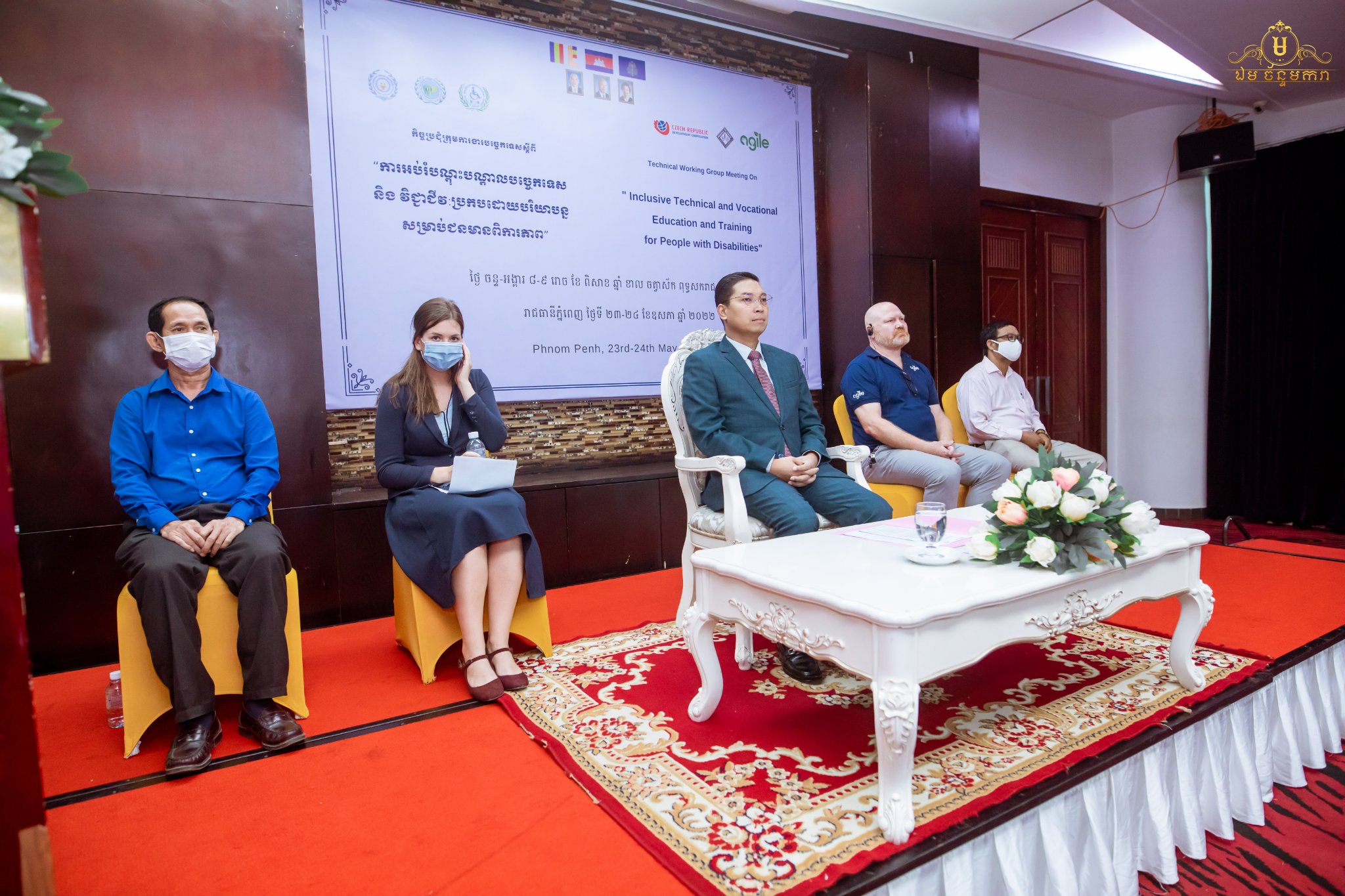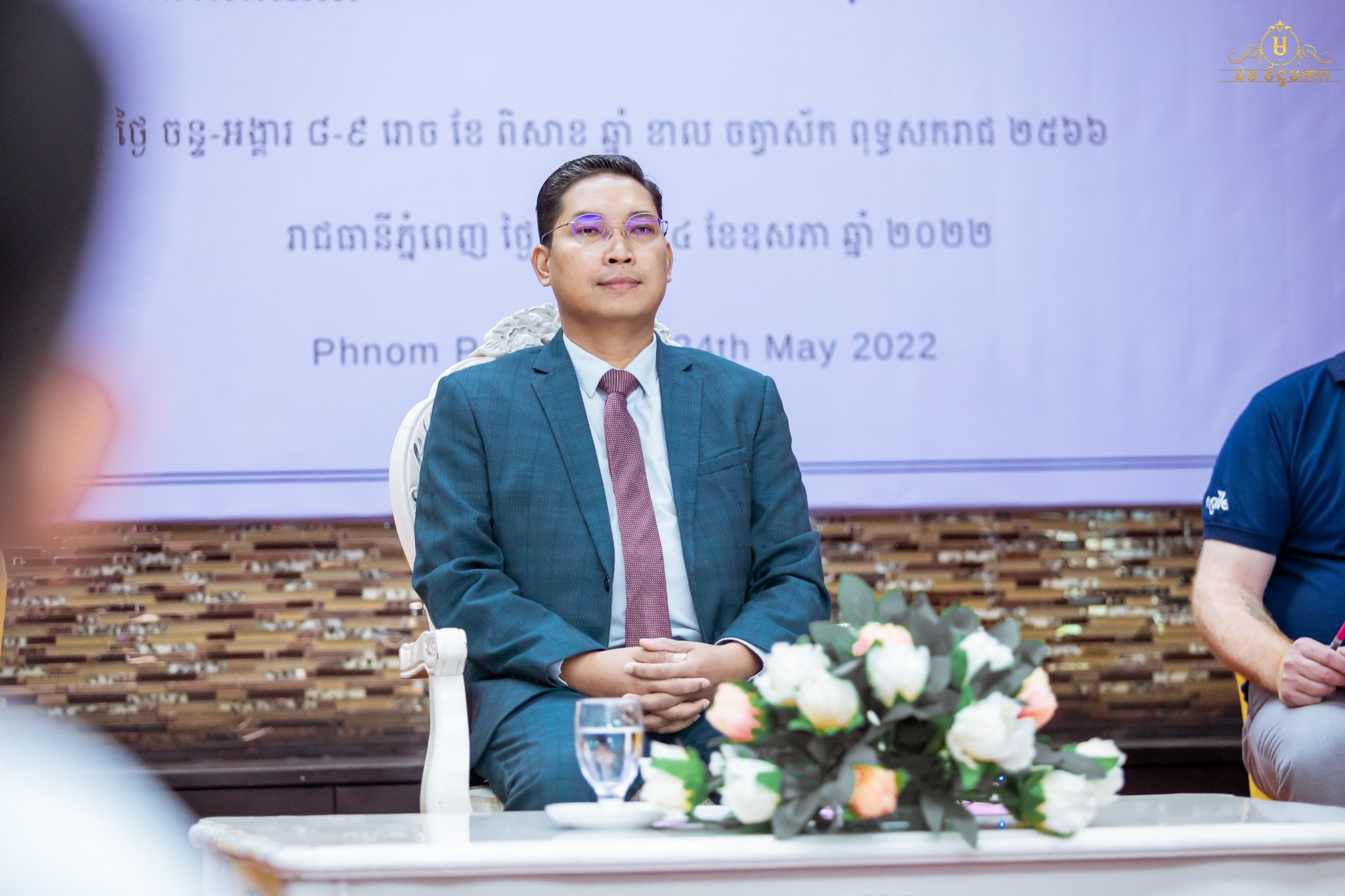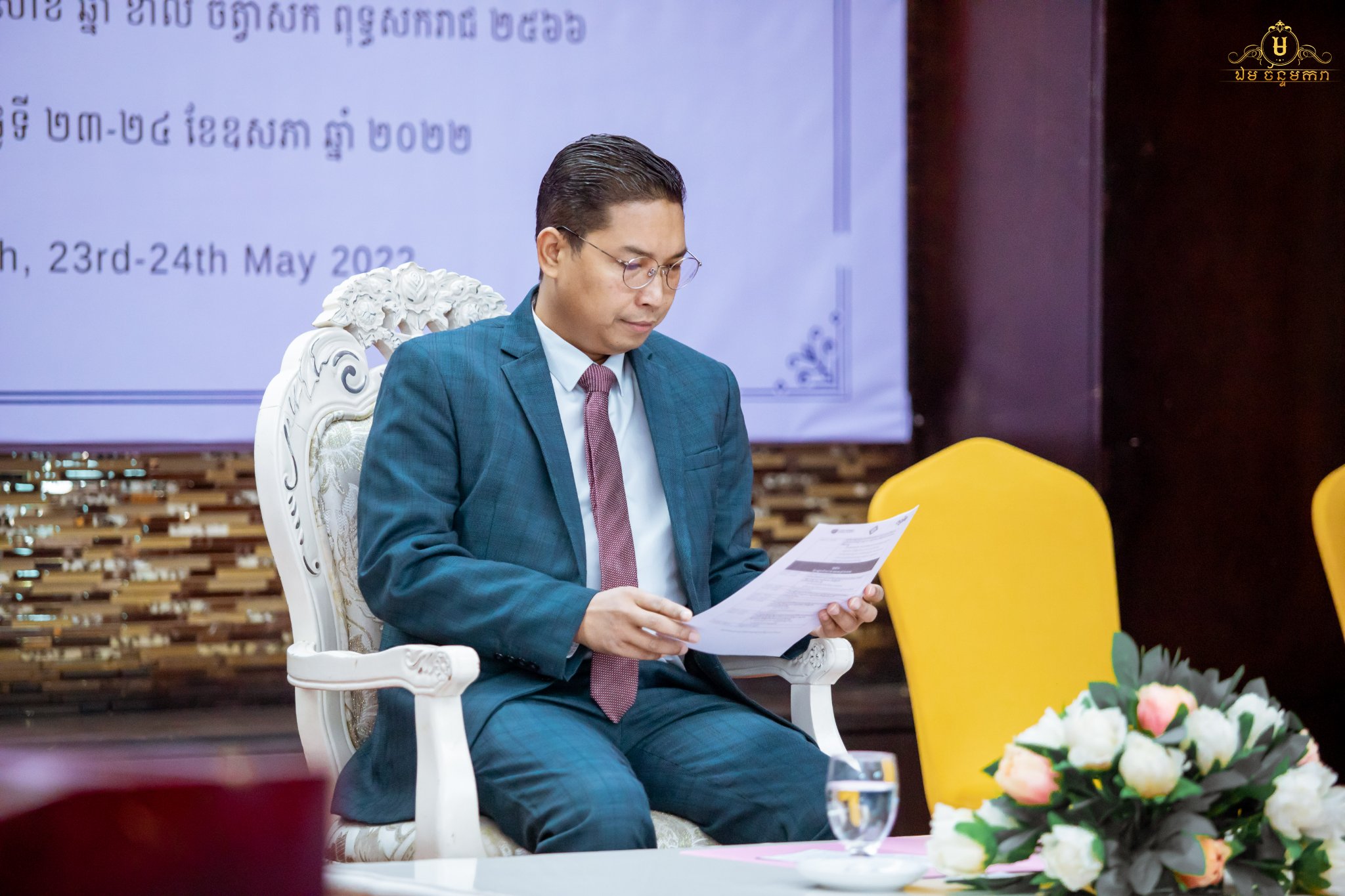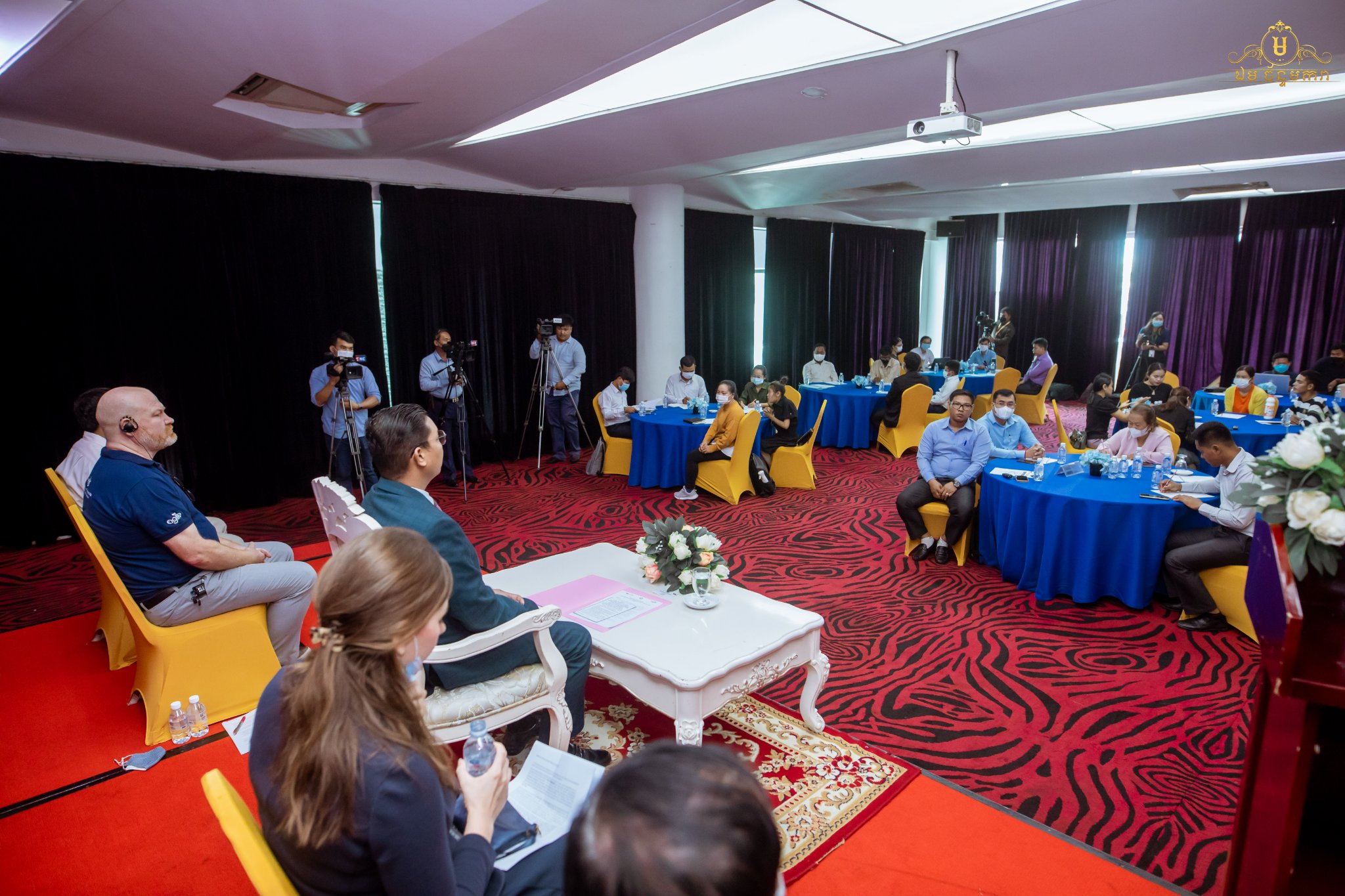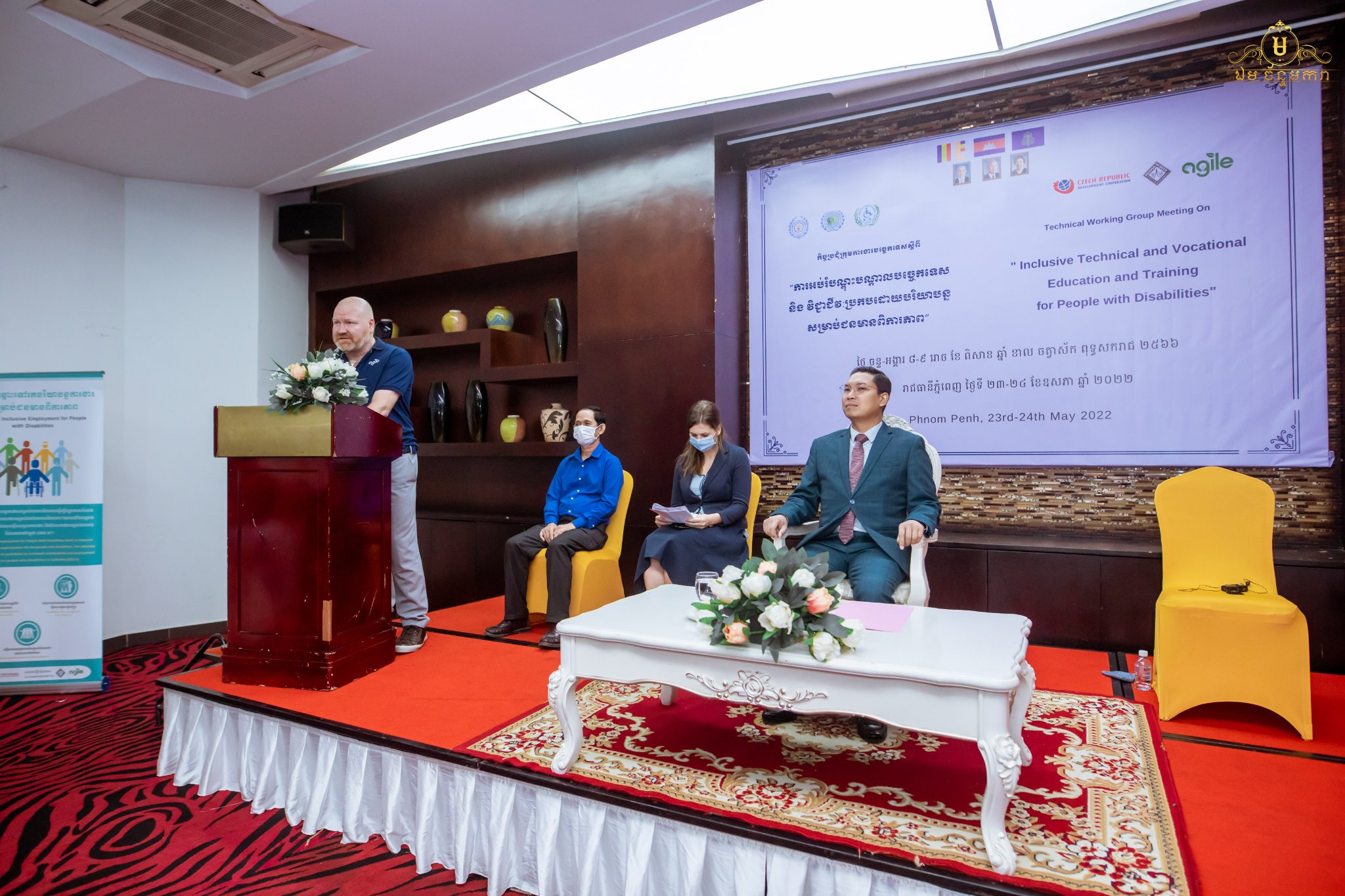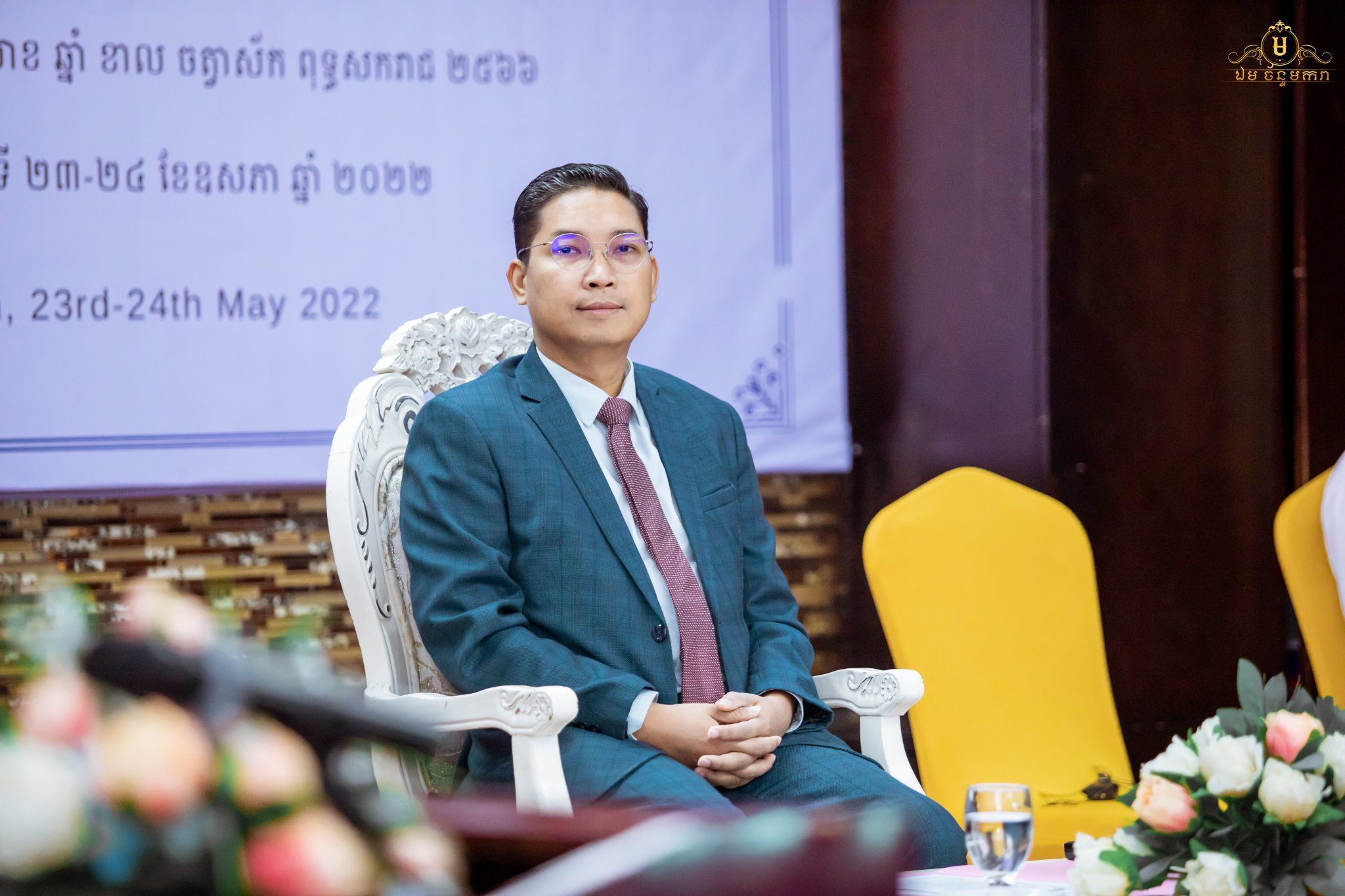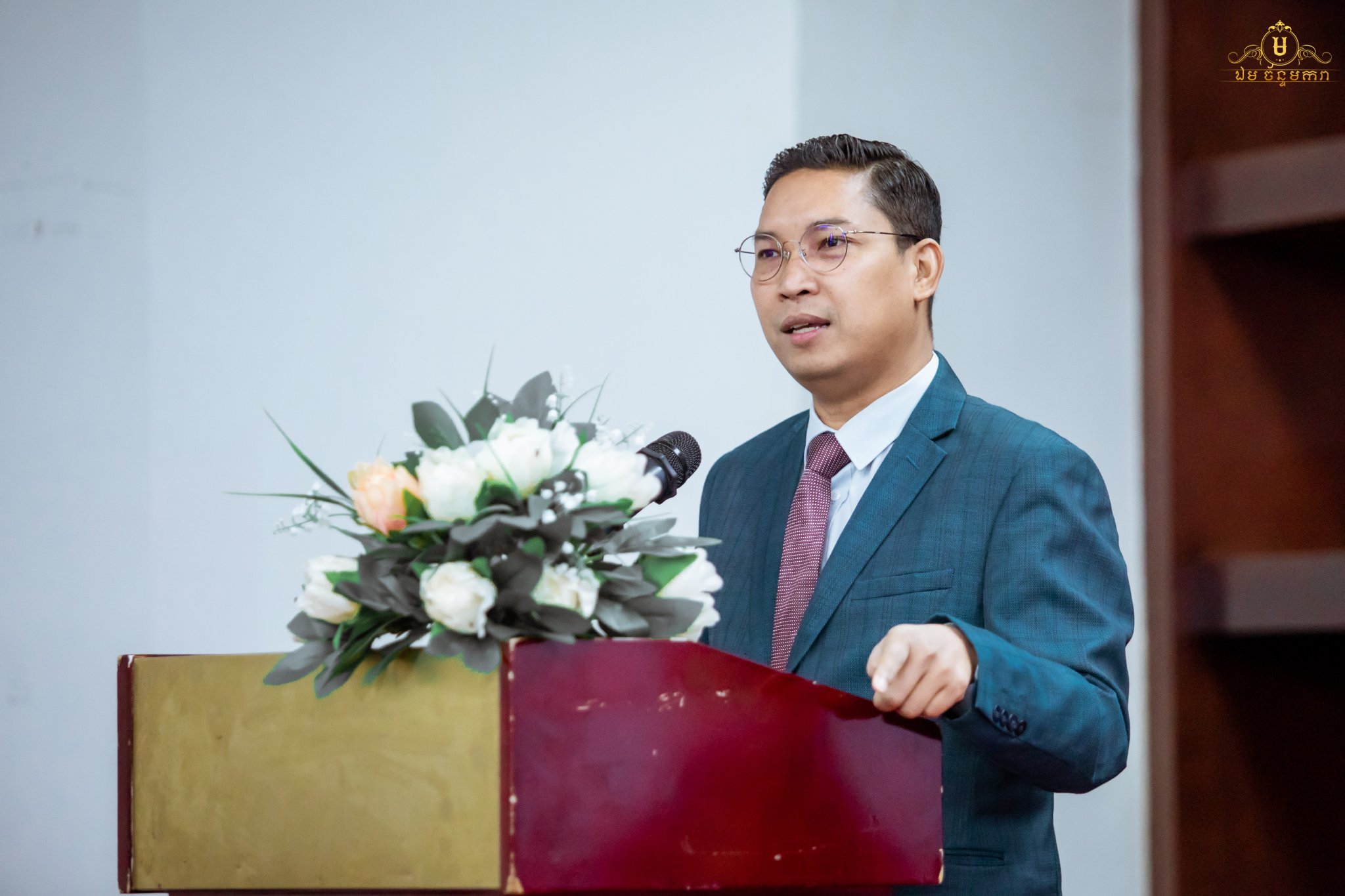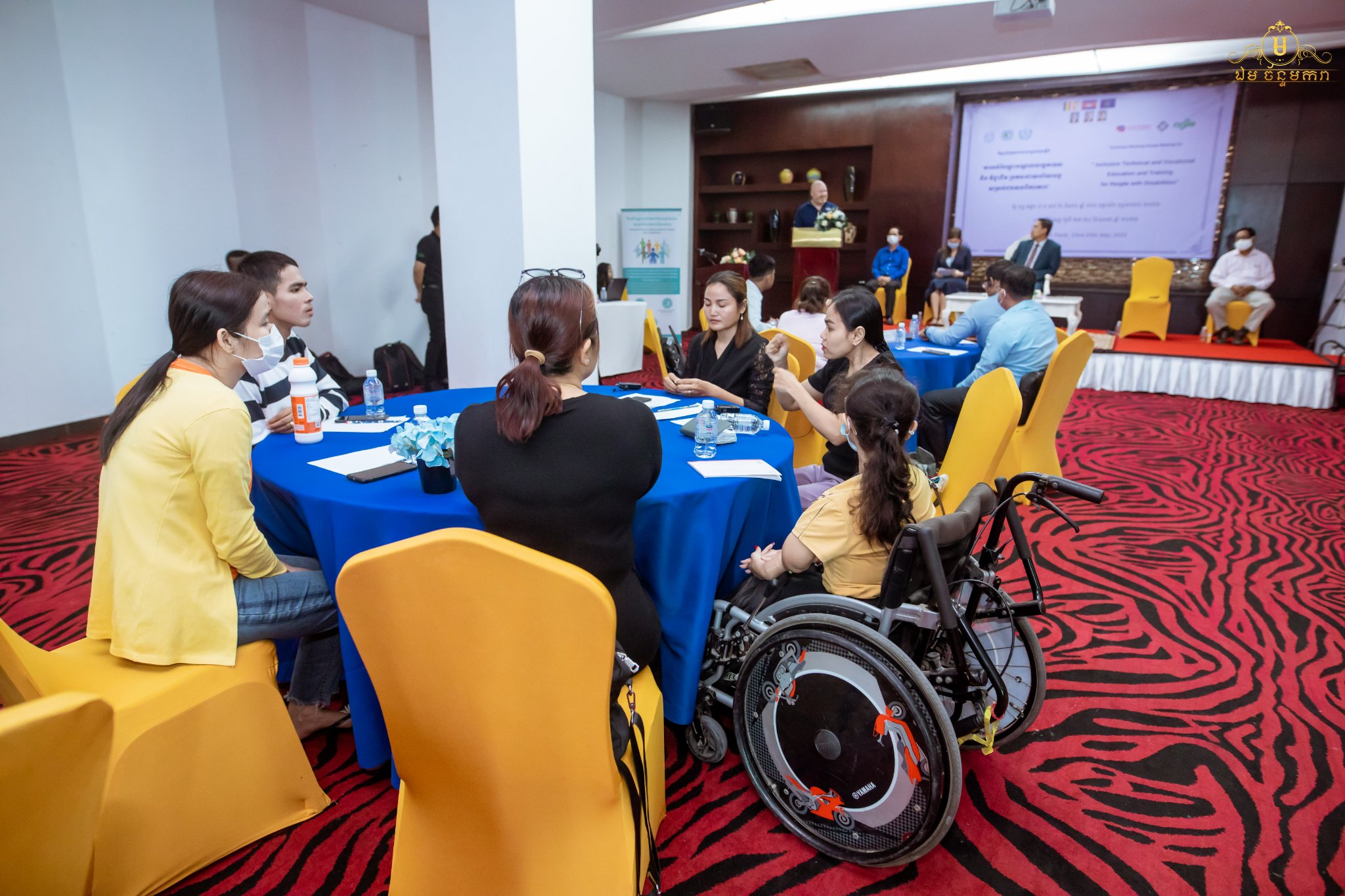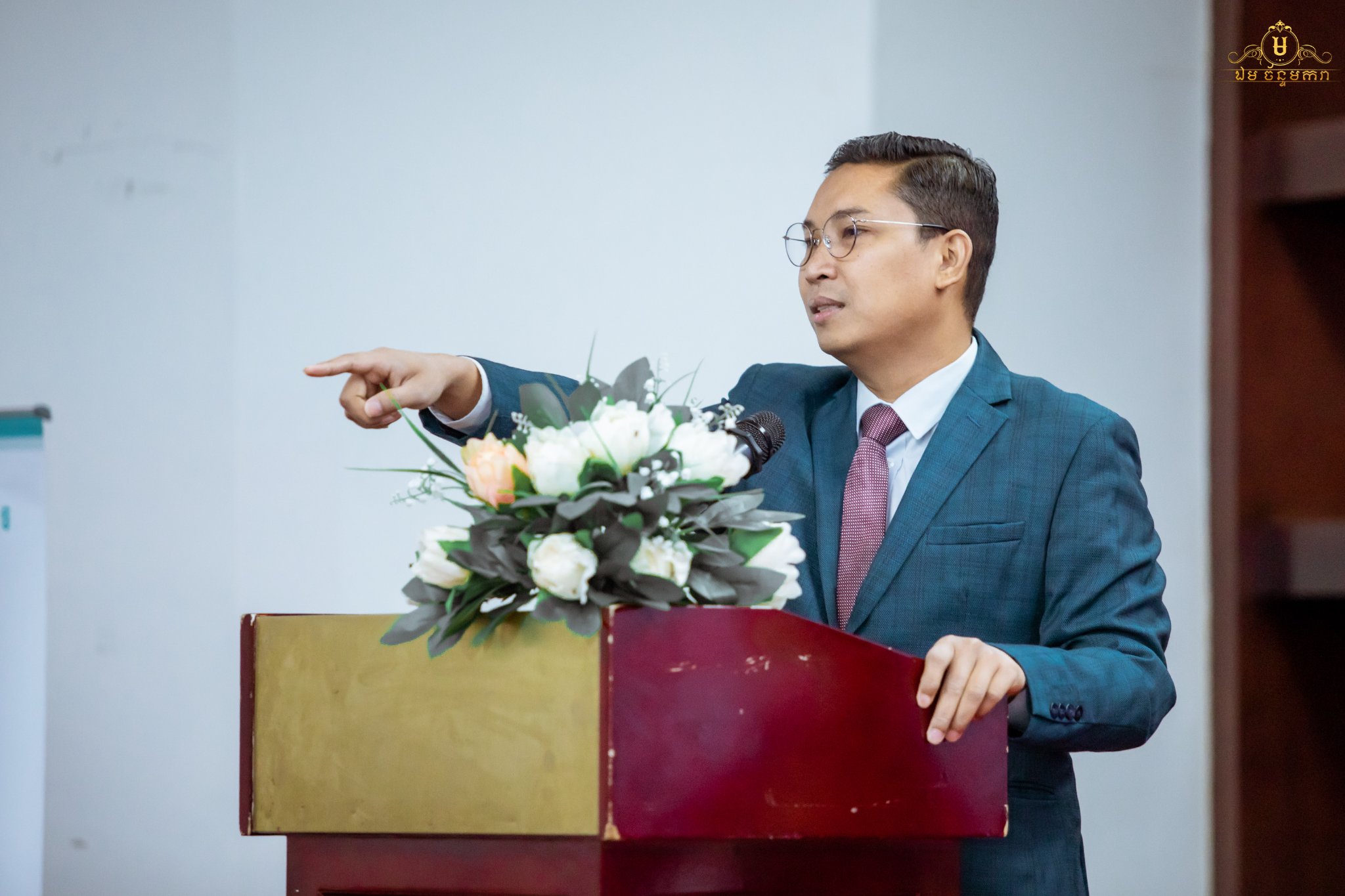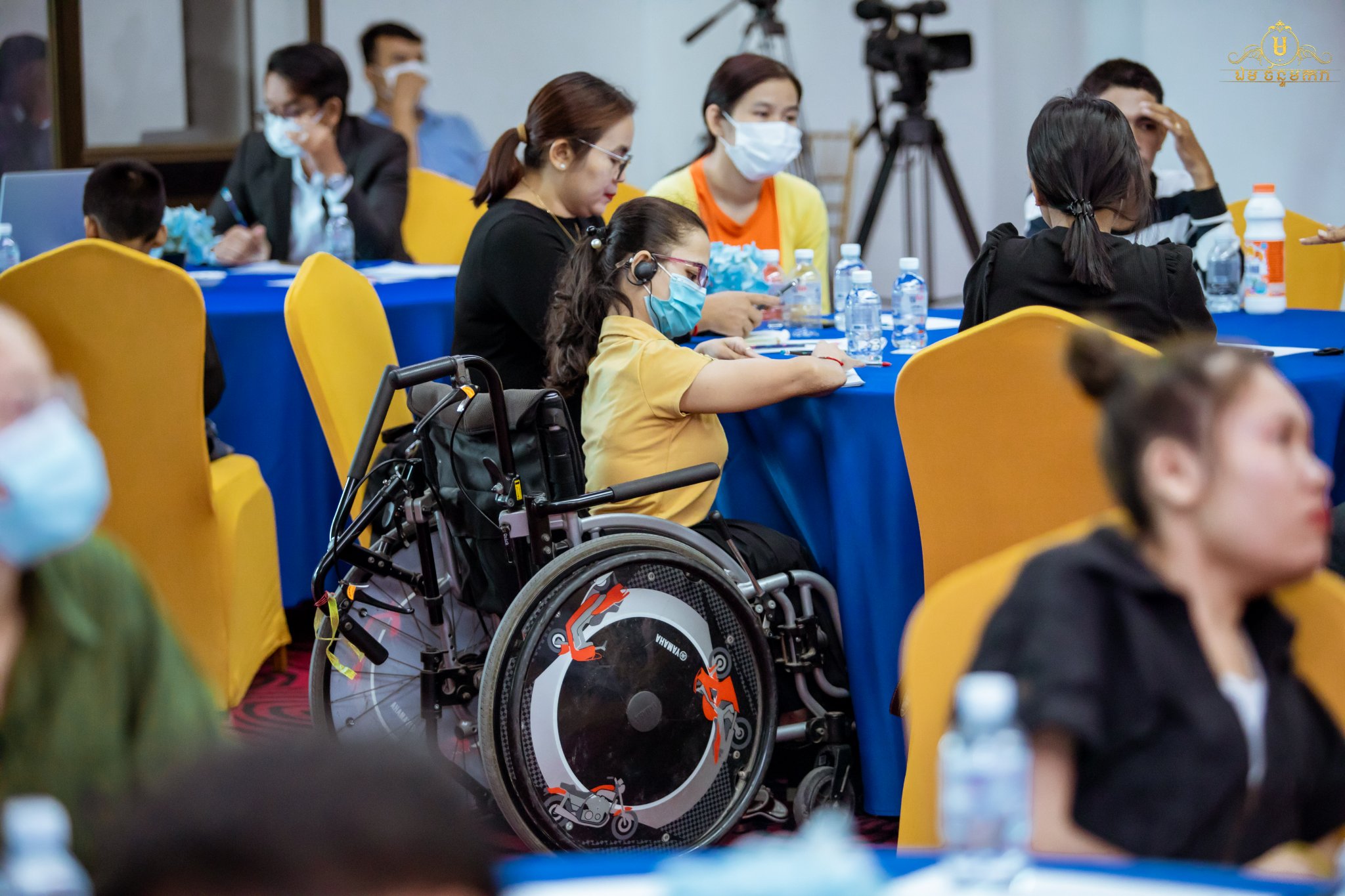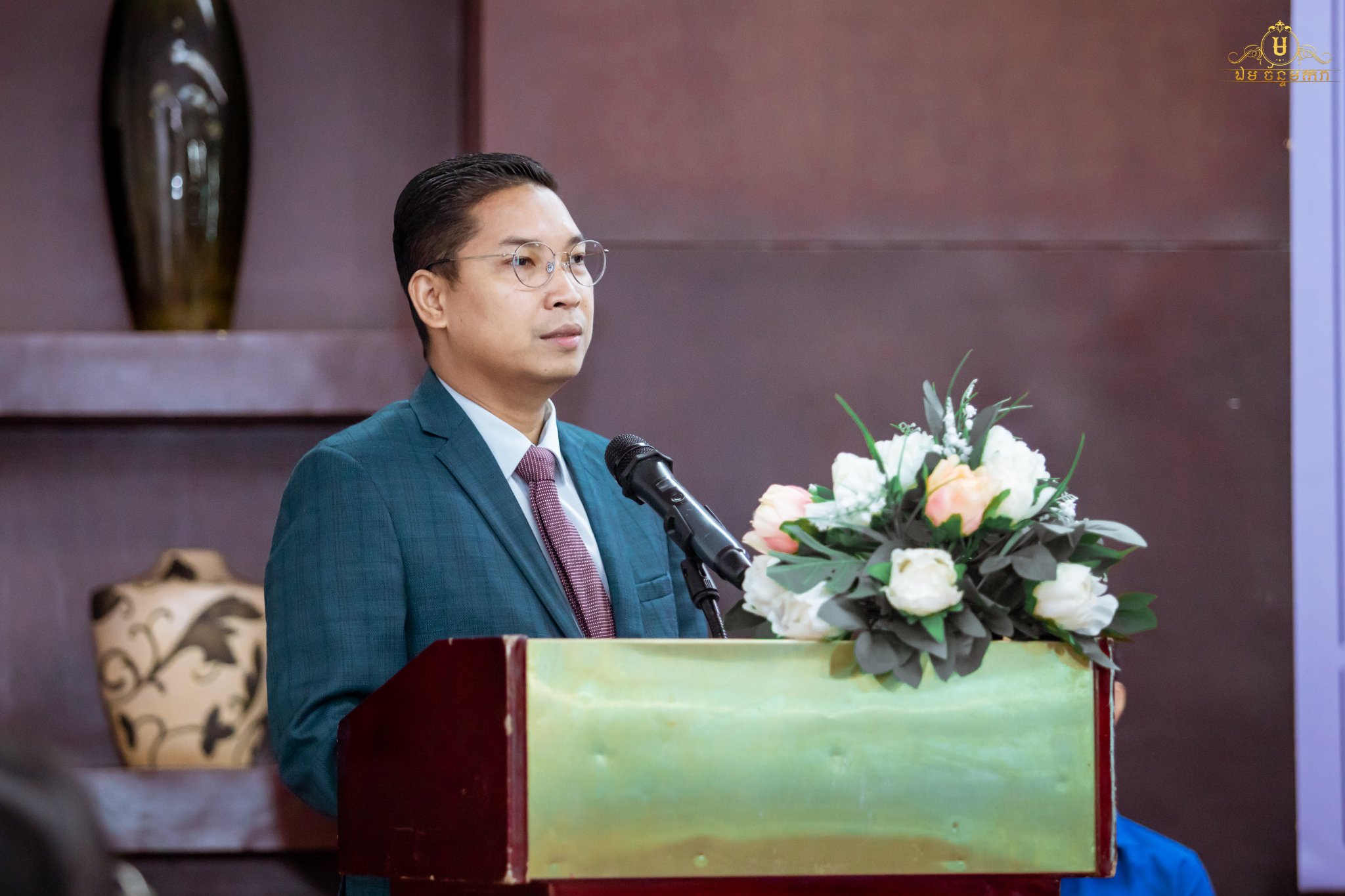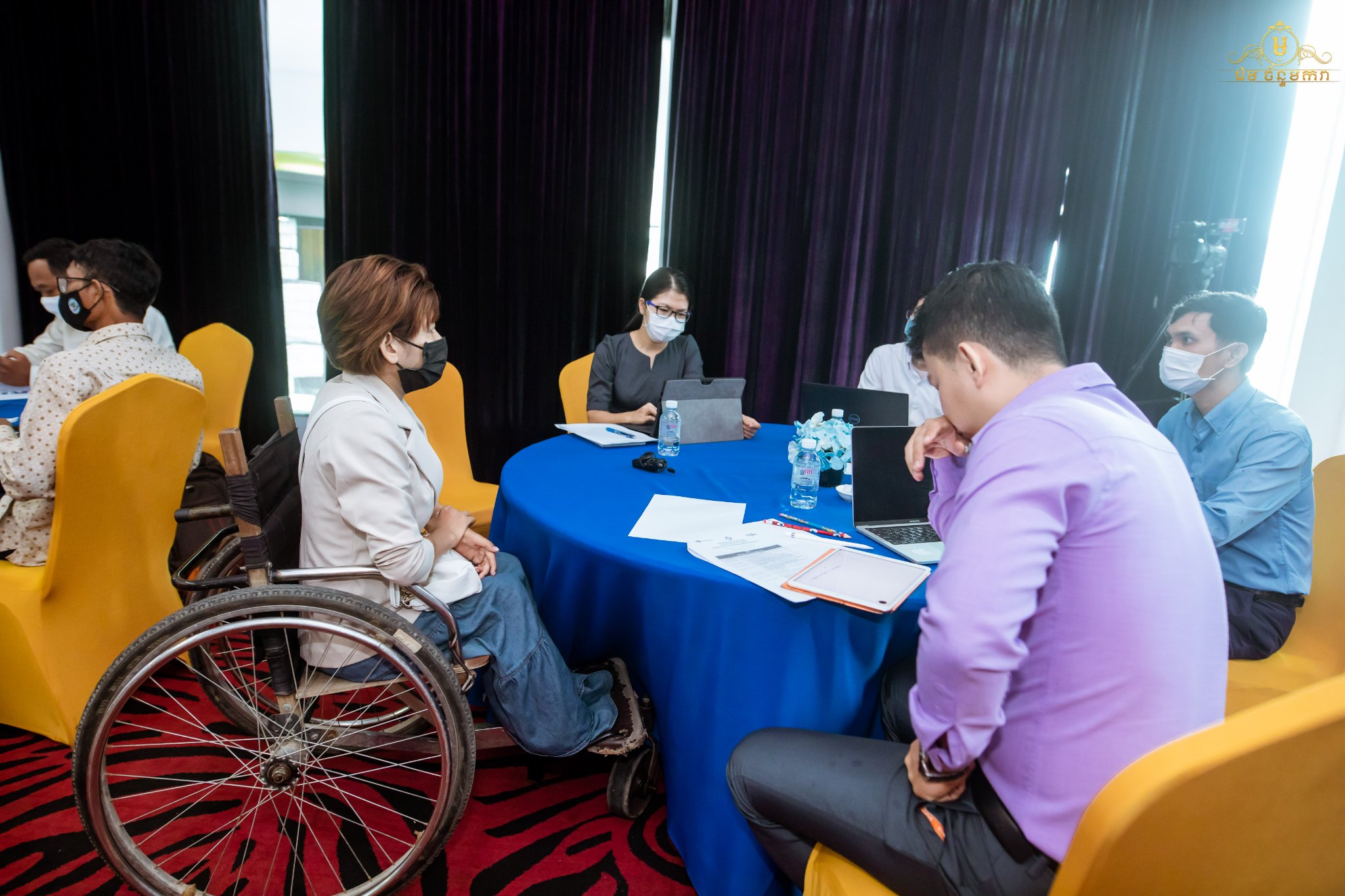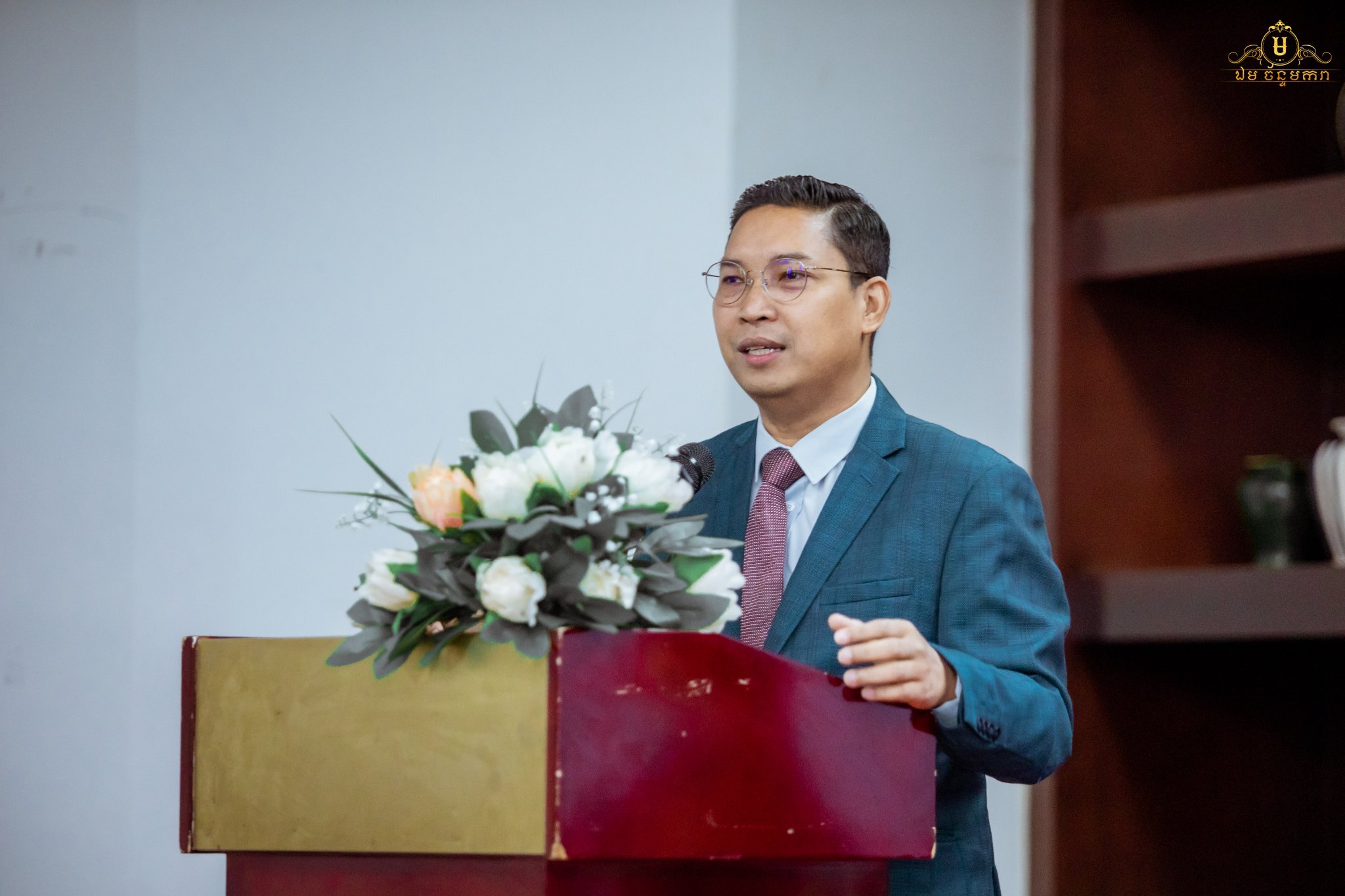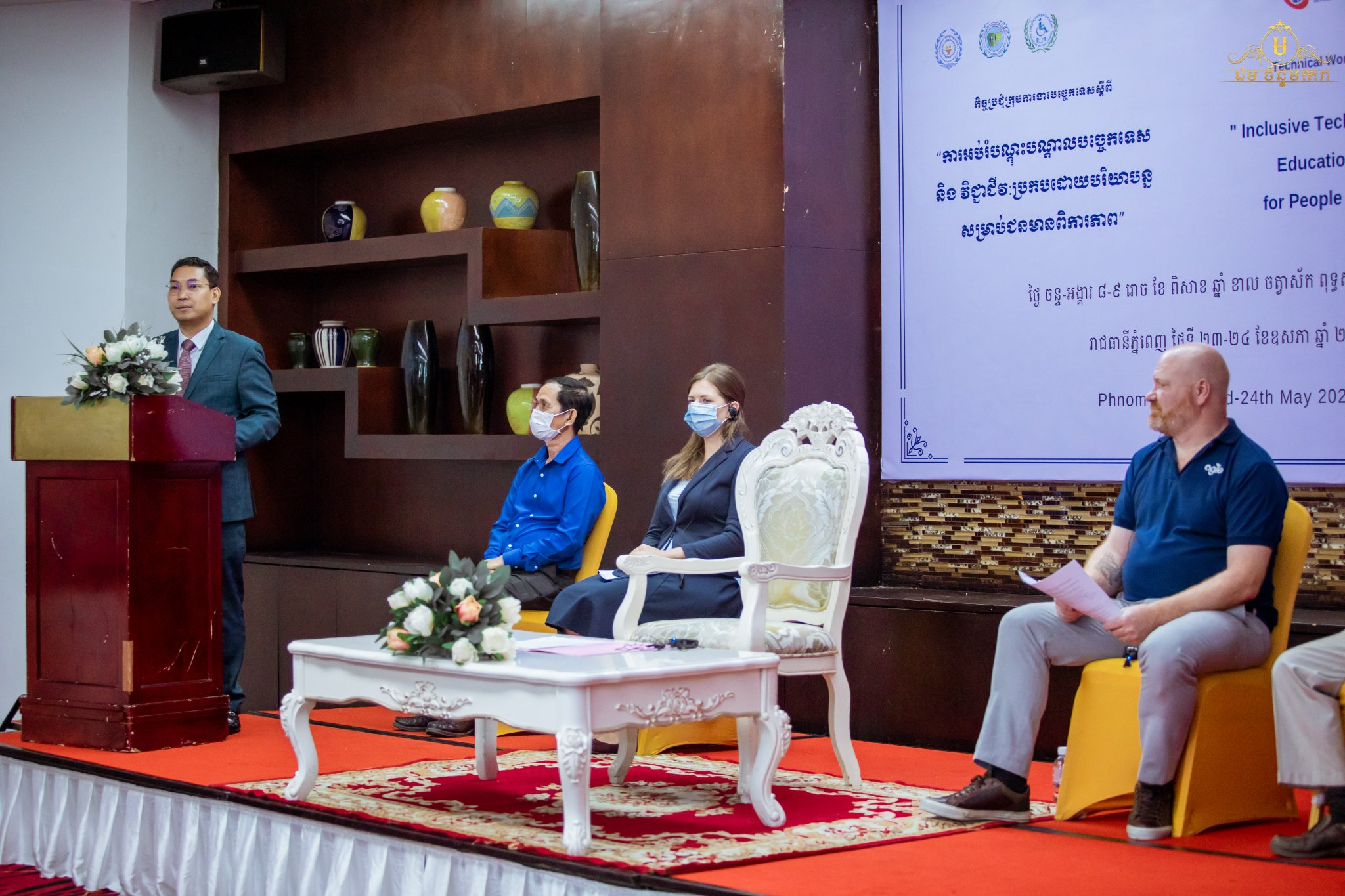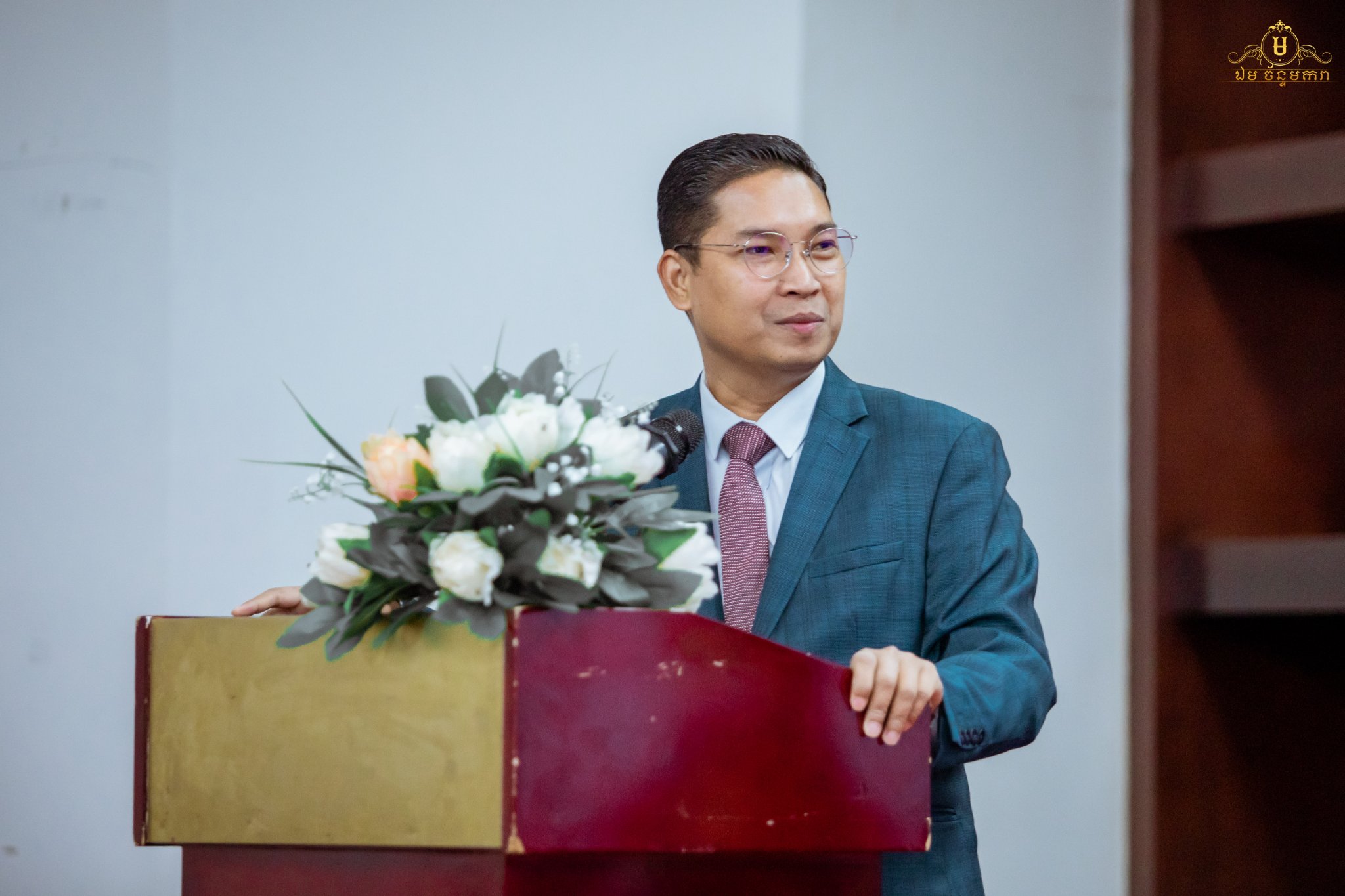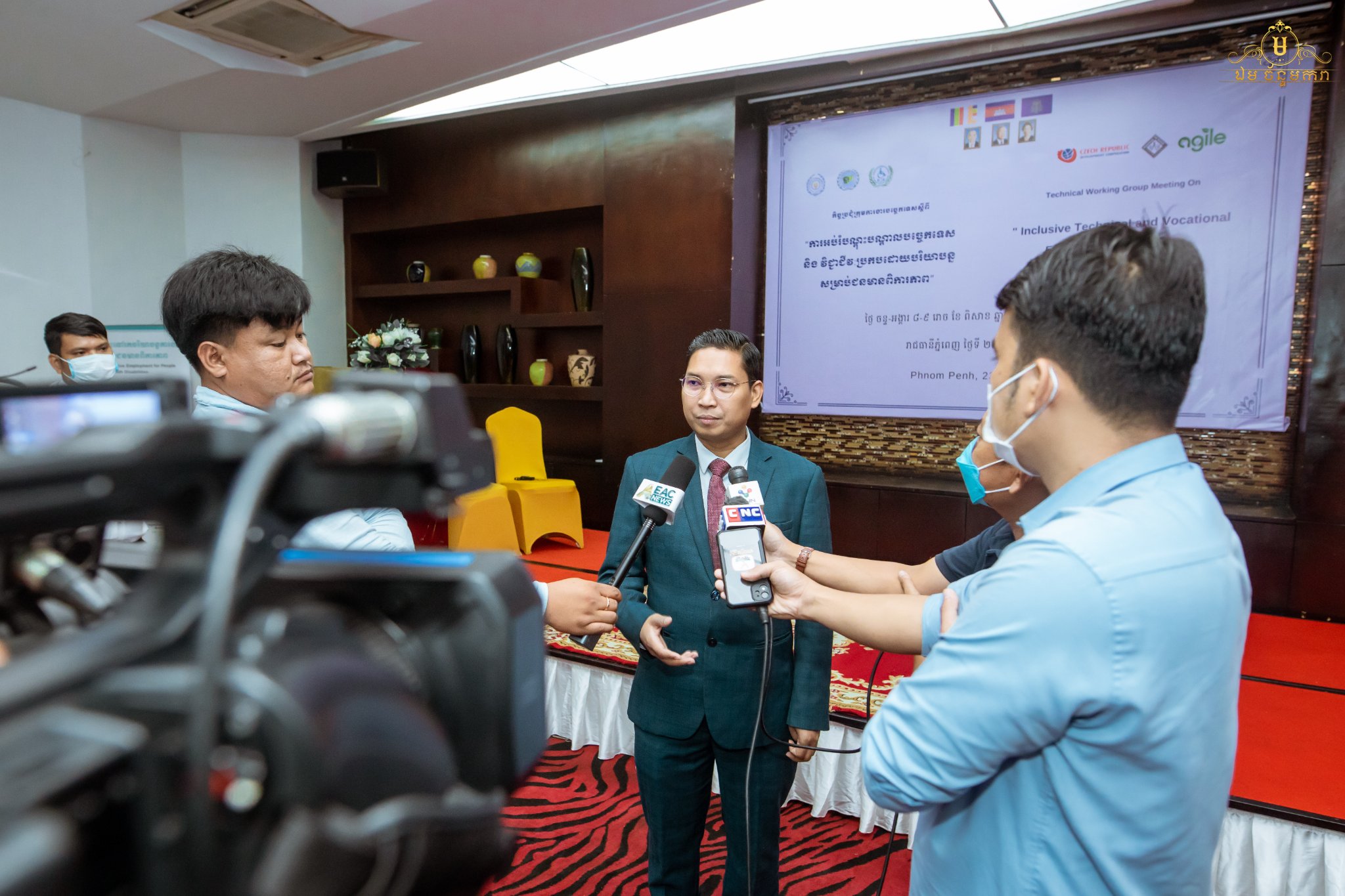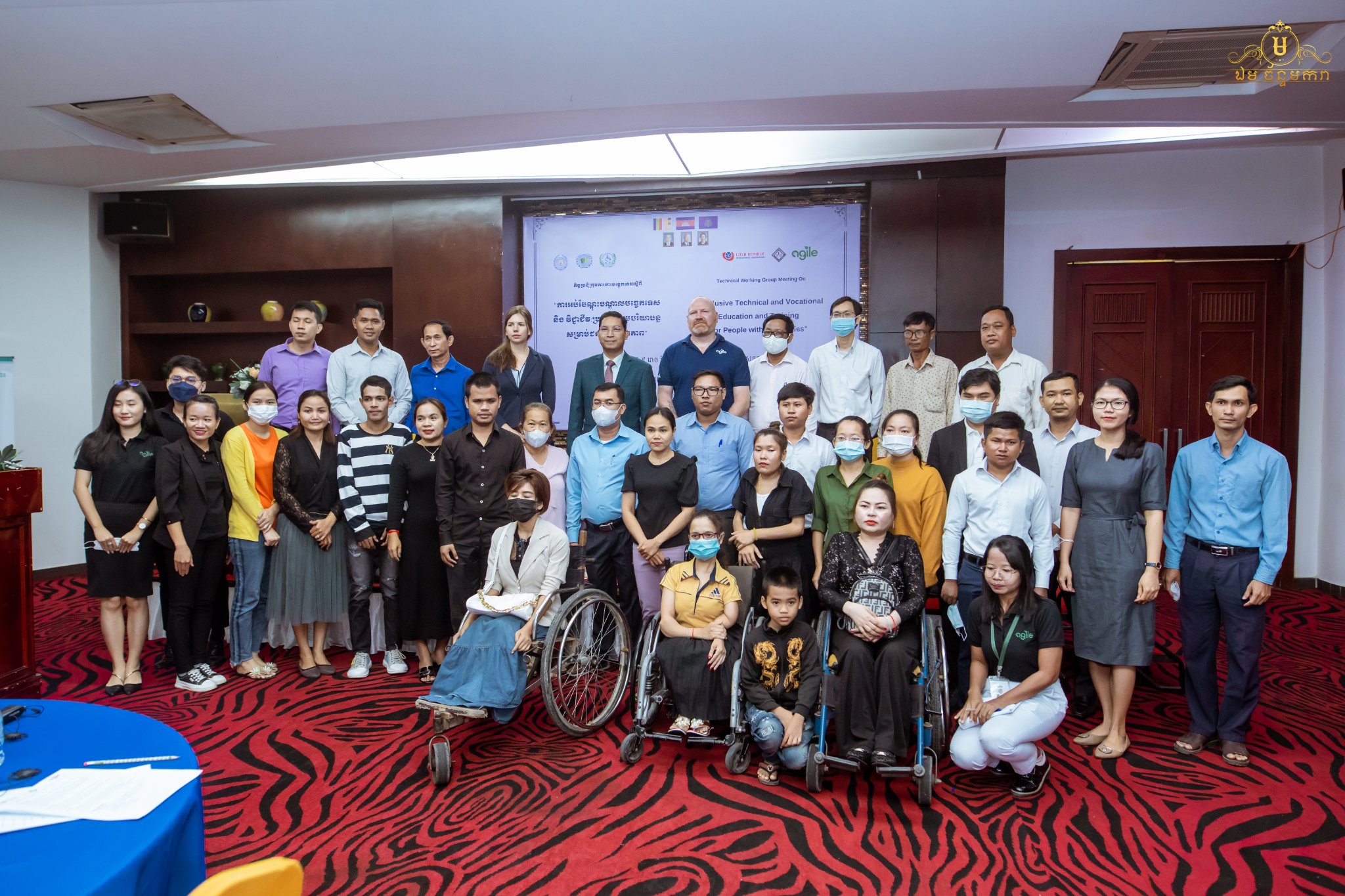PHNOM PENH: The Secretary of State of the Ministry of Social Affairs, Veterans and Youth Rehabilitation, and the Secretary-General of Disability Action Council, Em Chan Makara, has stated that persons with disabilities are always taken care of by the Royal Government. He said that the government also works hard to raise awareness on the importance of technical and vocational training, to modernize technical and vocational education and training programs, as well as to focus the program closer to persons with disabilities, based on the needs of the labor market.
Secretary of State Em Chan Makara made these remarks at opening ceremony of the "Technical Working Group Meeting on Inclusive Technical and Vocational Education and Training for People with Disabilities" on Monday, 23 May.
He continued, "Increasing vocational training for persons with disabilities, in accordance with the national social protection policy framework, has also been promoted [by the government], and the budget allocation by relevant ministries and institutions to support persons with disabilities with technical and vocational training is also carried out, increasing possibilities for persons with disabilities to volunteer and gain experience in the free labor market."
He also said that in addition to national policy measures, the Royal Government has encouraged and supported employers, educational institutions, vocational education and training institutions that provide opportunities for persons with disabilities and their families to receive education, vocational training, skills and capacity building on communications, through leadership training, confidence building and career orientation.
Ian Jones, the Executive Director of Agile Development Group, also spoke at the opening ceremony and said that persons with disabilities are estimated to represent 2 to 9.5 percent of Cambodia’s population. He highlighted how generally, persons with disabilities are more likely to live in poverty and one of the main reasons for that is an unequal access to education and discriminatory hiring practices. Only 44% of children with disabilities have completed primary school, compared to 73% of youth without disabilities.
He added that this gap continues to increase as the level of education advances, but said the Cambodian vocational training system is still at an infant stage in comparison to neighboring countries such as Thailand or Vietnam.
"In order to ensure sustainable transition of persons with disabilities to decent and appropriate employment opportunities, it is important to address the underlying prejudices, misunderstandings and constraints of the vocational training sector and the hiring process of the private sector," said Ian Jones.
Secretary of State Em Chan Makara, in response, said that he disagrees with one point that Ian Jones mentioned regarding vocational training in Cambodia still being in its infant stages, and encouraged his company to visit the Cambodian Vocational Training Center to see if it was really in its infancy like he had stated. He told the representative of the Ministry of Labor and Vocational Training to send an invitation letter to his company, Agile, to see for himself.
The Technical Working Group Meeting on Inclusive Technical and Vocational Education and Training for People with Disabilities will be conducted at least once a year (2022/2023) on a two-day basis attended by representatives of technical groups. Initial meetings will be kicking off in 2022 along with ongoing consultation on the generated guidelines, and the group will meet again to finalize the guidelines at the end of 2023. This meeting will bring together relevant stakeholders seeking to support the improved quality of inclusive education for persons with disabilities, undertake a rigorous assessment and ideation of best practice inclusive education in the Cambodian context, and gain practical insight into how the barriers to the inclusion of persons with disabilities accessing technical and vocational education and training can be overcome, from both the supply (TVET) and demand (students) sides of education.
